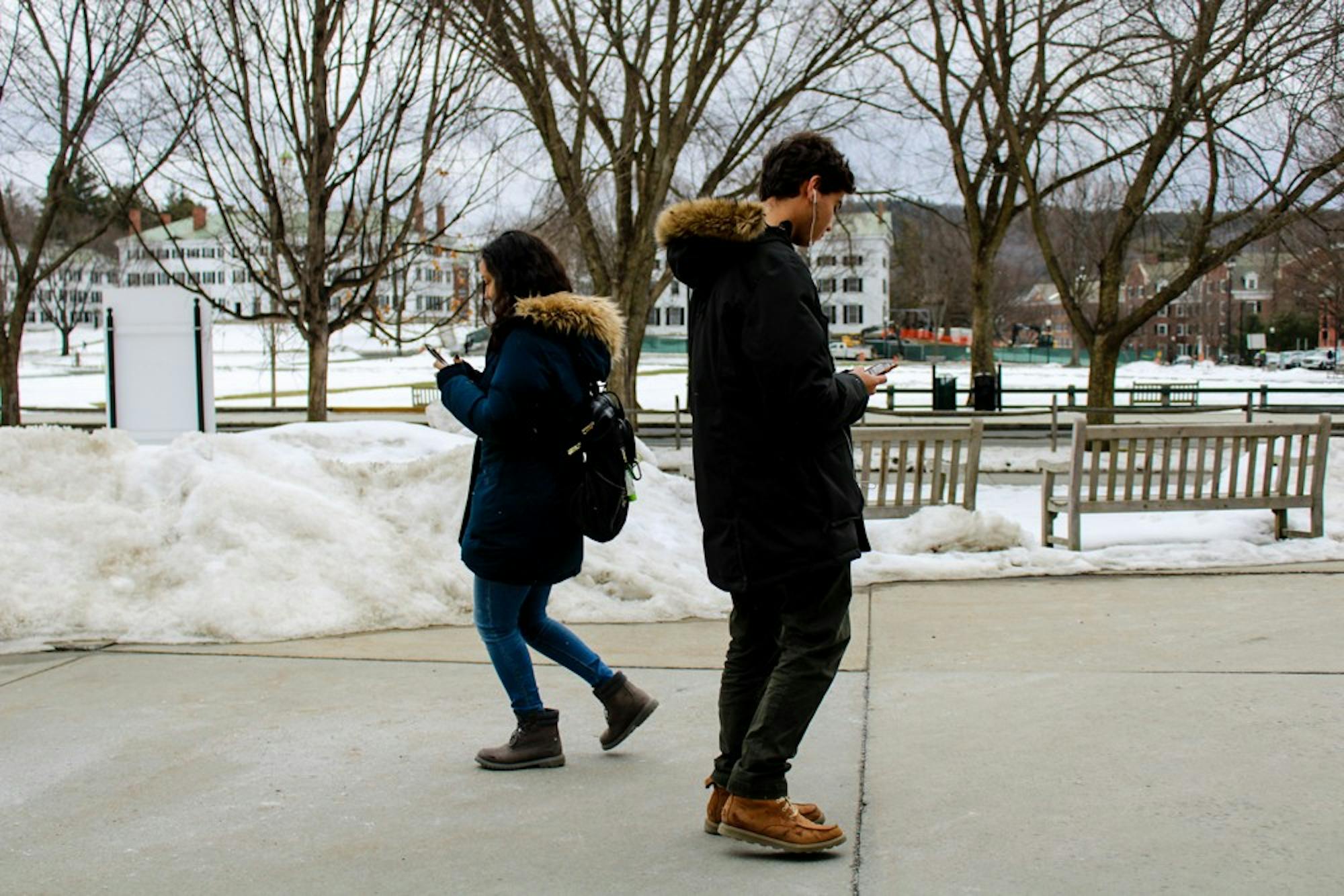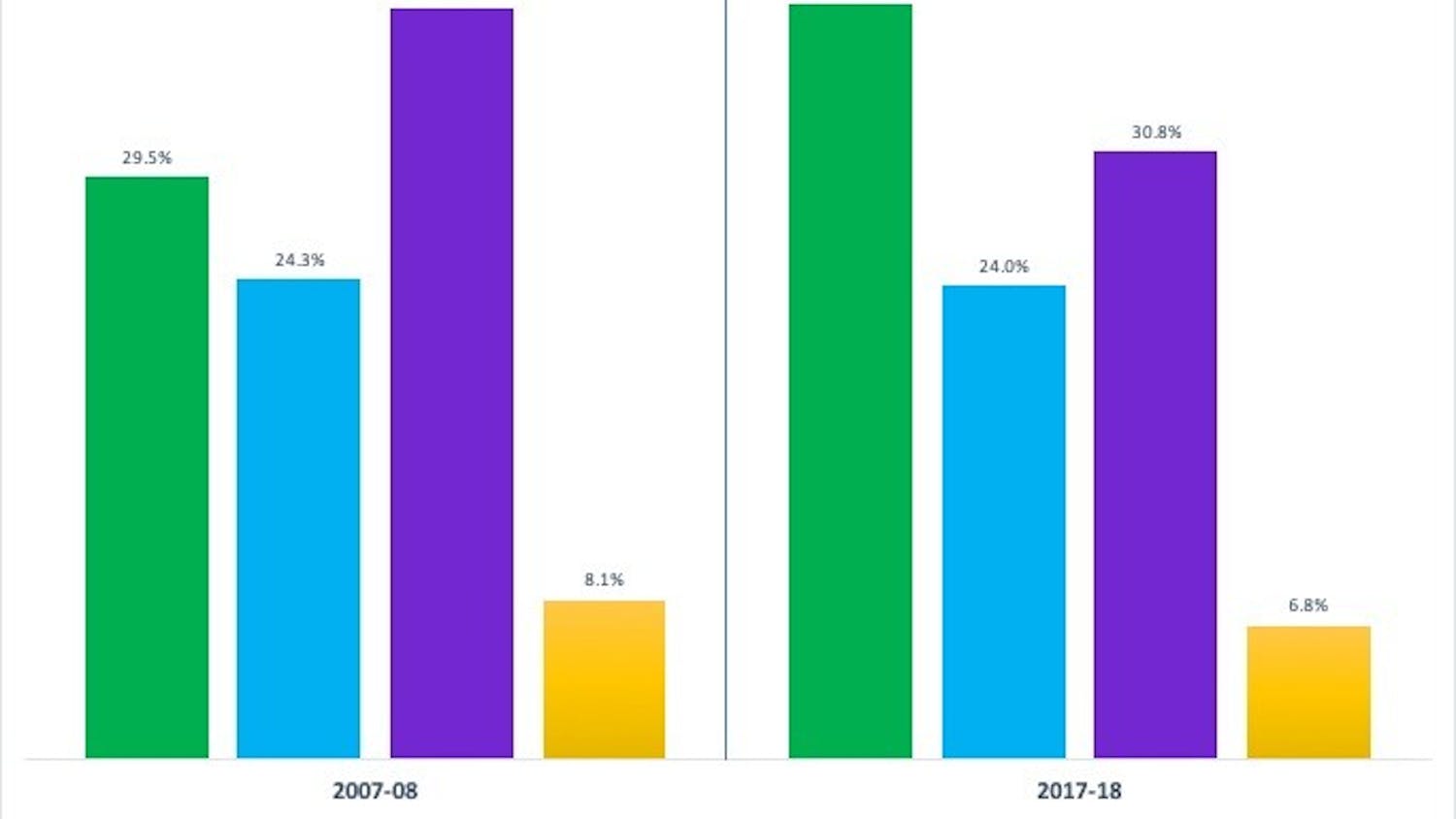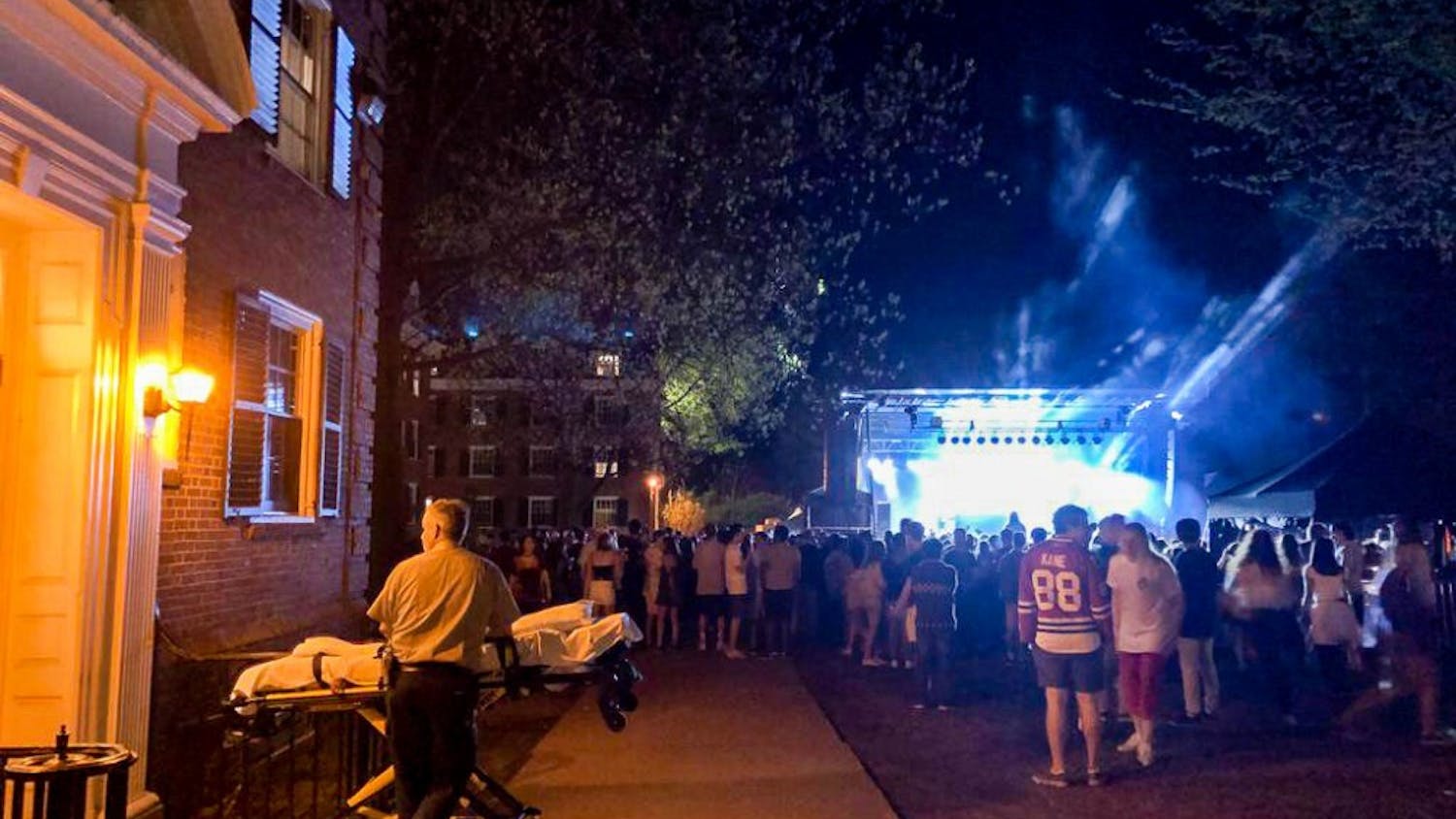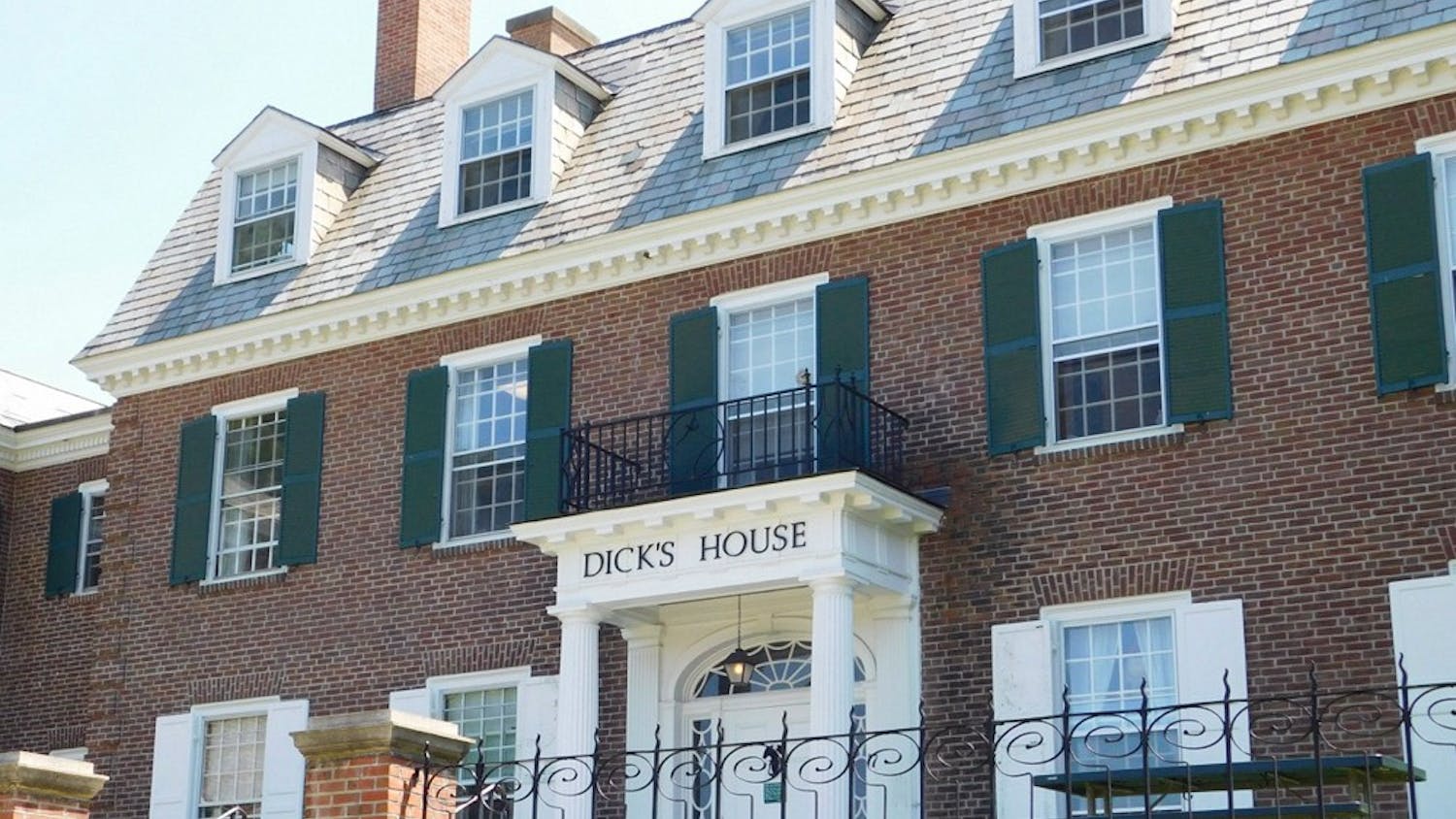Is Big Brother watching you? Probably not at Dartmouth.
Despite a nationwide increase in the number of colleges using WiFi and Bluetooth to track student-athletes on their campuses — or in extreme cases, planning to track all students for attendance purposes, such as at the University of Missouri — Dartmouth has no plans to engage in such practices.
The College’s ability to track students using data in rare circumstances shines a light on the nature of technology at the College.
According to chief information officer Mitchel Davis, despite having the largest storage of wireless information of any institution in the country, Dartmouth rarely accesses this data or utilizes any form of WiFi tracking. He said that, in theory, Dartmouth could access the location information and WiFi usage patterns of its students, but said the school has no reason to.
“As soon as you connect to the wireless network, and as soon you connect to AT&T, that triangulates and lets us know — if we wanted to know where you were, we could do that,” Davis said.
Davis said that the College does not utilize this information, though very rare circumstances could permit it. In fact, Davis added that such activity would be “countercultural to who Dartmouth is,” given the trust that he said is characteristic of the College community.
According to Davis, WiFi tracking may not be problematic as long as the individual being tracked can choose when they are being monitored and can end the surveillance activity without consequence. He said that this type of service exists within applications such as LiveSafe, which allows users to request that their location be “watched” as they walk home at night or in other situations where they may feel unsafe. He added that he can envision other services for which this opt-in monitoring technology may be useful.
Dartmouth athletics director Harry Sheehy said that he hopes that the College would never have to use software like SpotterEDU, citing the high level of trust he believes exists within the Dartmouth athletics program, the academic support offered to athletes through the Dartmouth Peak Performance program and the small size of many of Dartmouth’s classes as reasons the software is unnecessary at the College. Software on platforms such as SpotterEDU, which is being used at dozens of schools nationally, allows Bluetooth transmitters to connect with students’ phones when they walk into a room or building, logging their time of entry into a database that tracks their attendance over time.
Sheehy also said that he believes monitoring Dartmouth athletes to this degree would be unnecessary given the academic capabilities of the students who come to the College to play sports.
“The student that we’re bringing here is a fairly savvy, sophisticated student,” Sheehy said. “I think the raw material [of athlete] that arrives here — and at our other seven brother and sister schools in the league — is really high quality.”
A Dec. 24 article in The Washington Post noted that Columbia University was among the schools using SpotterEDU. The Columbia athletics department declined to comment for this article.
Sheehy emphasized the importance of personal responsibility for student athletes — especially considering the high cost of attending Dartmouth, which does not award athletic scholarships. He said he believes that, even without monitoring, most Dartmouth athletes are prepared to be “students first” to make the most of their education.
Liam Davidson ’20, a member of the heavyweight rowing team, said he agreed with Sheehy’s assessment and added that he appreciates the trust given to student athletes at Dartmouth. Davidson said the idea of SpotterEDU is “deeply infantilizing” and that technology like it has no place at Dartmouth.
“If the purpose of institutions like Dartmouth is that students should want to come here because they want to implicate this sense of being well-rounded and thoughtful and caring about their education, you shouldn’t need a system that’s going to track 6,000 locations per student per day in order to assign them a grade,” Davidson said.
Davidson said that while the athletic community cares about the success of Dartmouth student-athletes, it’s not expressed in a way that is “patronizing or controlling.” Coaches might casually ask him how a class is going, but never address his grades in a way that seems intrusive, Davidson added.
While Sheehy conceded that monitoring software might be useful in the athletic departments of some schools — such as large state schools that offer athletic scholarships — Davidson said he believes this type of activity is unacceptable regardless of institution.
“It’s a philosophical question of like the carrot and the stick,” Davidson said. “Do you penalize students for not showing up, or do you try to incentivize them to show up by showing them what good attendance in class and showing up for things like office hours does for not only the quality of your education, but your outcomes in life?”
Computer science professor V.S. Subrahmanian said that — even from a faculty perspective — he has little interest in the idea of monitoring student attendance using software like SpotterEDU.
“As professors, we would like to deliver the best possible education to our students, but we can’t force them,” Subrahmanian said. “You can lead a horse to water, but you can’t force it to drink.”
Davis said that software like SpotterEDU is very different from the opt-in applications for tracking that he and others might support.
“If they have software, then they’re either putting an AI against it or they’re putting a set of criteria against it to say, we want to know these things about these people,” he said, adding that this could have more problematic consequences. “The problem I have is when it’s on all the time and they’re using that information to basically control you.”
Subrahmanian also echoed the importance of an opt-in feature for any monitoring activity and expressed concern about the use of data obtained by monitoring software, which he noted may be run by companies focused on financial incentives with little regard for student wellbeing. He added that some of the forms of tracking that may happen at the College — such as in the case of scientific studies administered by external organizations — might not follow the protocols typically needed for studying human subjects.
“Unfortunately, companies don’t necessarily adhere to these standards,” Subrahmanian said.
Davis and Subrahmanian both said that — were it to be useful — Dartmouth could create a histogram of student movement patterns over a period of time. This feature, Davis said, is used in very rare circumstances by the Department of Safety and Security.
Interim director of Safety and Security Keysi Montás said that there are only two circumstances in which Safety and Security might use WiFi tracking. Both, he noted, are classified as emergencies.
The first situation is in the case of a missing person, Montás said. In this circumstance, Safety and Security might check to see if the missing person’s device has utilized the Dartmouth network recently.
The other situation would result from a threat of imminent danger or violence on campus, during which tracking might entail checking to see if any devices on the Dartmouth network have accessed a certain website linked to the threat.
“Let’s say somebody calls and says, ‘I was on this website and somebody said [something threatening] about Dartmouth,’” Montás said. “We can get the information for that website and see if anyone in our network accessed it.”
He emphasized that to take this type of action, the threat would need to be immediate and something that “must be looked at to maintain [the] community’s safety.”
Montás noted that taking either of the above steps would require approval from both the College administration and the Office of the General Counsel.
In other cases, such as criminal investigations, other forms of tracking might be used, Montás said. This tracking might include searching access control data, which indicates where and when Dartmouth students have swiped their ID cards. Montás noted that if this data were to be accessed, the information retrieved would be specifically limited to a particular time and location.
As a matter of policy, access control data cannot be used as an attendance tracking system; further, under no circumstances can a professor or department request information regarding when or if a student might be swiping into a building in an effort to monitor presence or timeliness, Montás said.
Moving forward, Davis said, the College may be able to take a more proactive stance on information usage.
“What could happen is that Dartmouth could sit down with the students and we could actually draft a sort of agreement as to what kinds of things can happen on a wireless network,” Davis said.
Eileen (Eily) Brady is a '21 from Chicago who studies government and romance languages. Eily loves travel, politics, iced tea and her dogs, Mac and Charlie. She is thrilled to be reporting the news for The Dartmouth.




